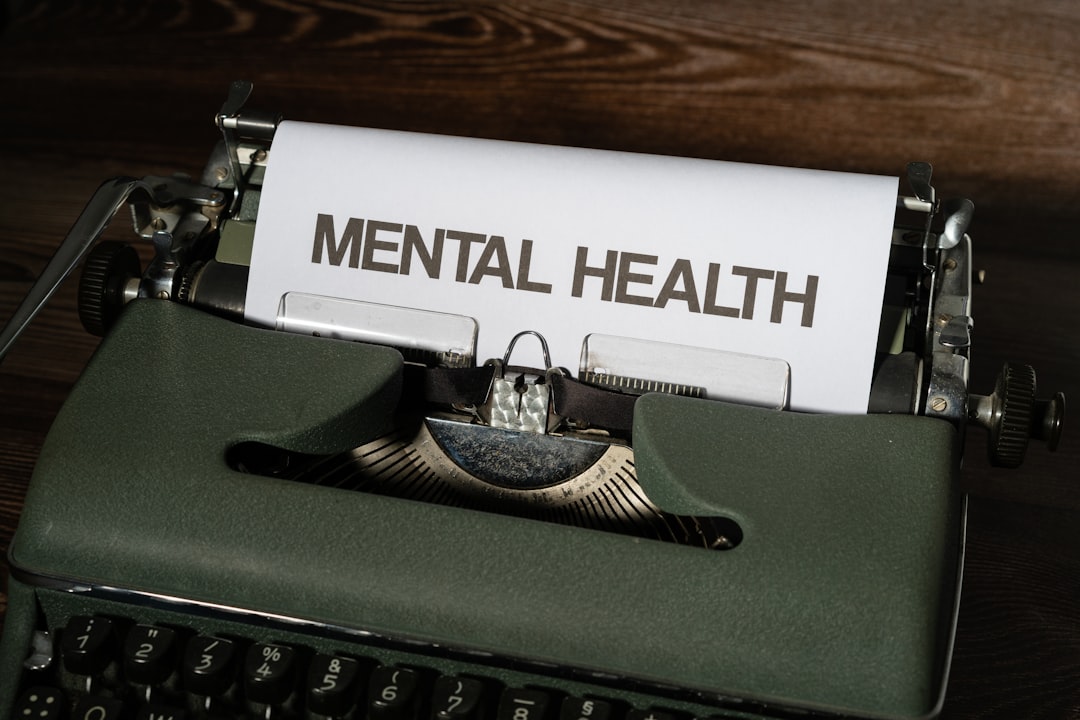11 Essential Steps to Overcoming Addiction: The Recovery Roadmap
Choosing recovery is a deeply personal act of courage—one that often doesn’t come easily, and rarely on the first try. If you or someone you care about is exploring the path to overcoming addiction, it’s important to remember that every journey looks a little different, but every step forward counts. Whether this is your first attempt or you’ve walked this road before, you’re not alone. These eleven essential steps offer a compassionate, practical roadmap supported by expert insight and lived wisdom. Think of them not as a rigid rulebook, but as gentle guideposts—flexible enough to honor your unique experience, yet rooted in strategies that truly help. Each step blends evidence-backed advice with understanding, offering hope, reassurance, and real-life suggestions for moving forward. Recovery isn’t a test of character or willpower—it’s a lifelong journey of learning, adapting, and rediscovering yourself. As you read on, take what resonates, adapt it to your real life, and remember: healing doesn’t happen in a straight line. Progress, no matter how small, deserves to be celebrated.
1. Acknowledge the Problem with Compassion

Admitting to yourself that you’re struggling with addiction isn’t easy. For many, denial feels protective—it shields us from pain and judgment, at least for a while. Yet, the first step on any recovery journey is gently turning toward the reality of the problem. This isn’t about labeling yourself or assigning blame. Rather, it’s an act of self-respect and, as many experts note, an act of courage. Recognizing addiction means you’re choosing to see yourself—strengths, struggles, hopes and all—with honesty and care. There’s a common misconception that admitting a problem is shameful or weak. But in truth, every story of recovery begins here, because acknowledging your reality is your first act of change. Wherever you are on your journey, remember: the simple act of saying, “I need help,” is worth honoring. The person who admits there’s something to face is the person who is ready to heal.
2. Seek Professional Guidance and Support

While recovery is a deeply personal undertaking, involving a professional can greatly increase success. Addiction specialists, primary care doctors, counselors, and support clinics provide expertise and accountability that’s often hard to find alone. You might worry that professional help is out of reach, but access is more varied than ever. Telehealth therapy and local clinics can help bridge gaps for those with busy schedules or limited transportation. Statistics show that just one in ten people with substance use challenges actually receives professional treatment—often due to stigma, fear, or lack of information. Know that asking for help is not a burden or a sign of failure. Whether you choose in-person visits, online appointments, or community resources, every pathway is valid. Professional guidance does more than provide medical advice; it connects you to people whose job is to support your recovery, not judge it.
3. Build a Support Network

Humans are wired for connection. In recovery, having a supportive network is one of the strongest predictors of long-term success. Support might come from family, friends, faith communities, peer groups, or even online forums. What matters most is that you feel seen, heard, and safe. Some people find strength in traditional 12-step groups like AA or NA, while others gravitate towards alternatives—SMART Recovery, faith-based fellowships, or secular communities. There’s no single “right way.” The key is finding people who encourage your growth, help keep you accountable, and remind you that setbacks don’t erase progress. As you build your network, notice who adds energy, compassion, and hope to your journey. Local meetings, online chats, or coffee with a trusted friend—these connections are not privileges; they are vital ingredients in sustained recovery.
4. Create a Personalized Recovery Plan

Healing isn’t “one size fits all.” Creating a recovery plan tailored to your own strengths, resources, and needs can keep you focused and resilient during inevitable ups and downs. Your plan might include therapy, support groups, health routines, life skills, or practical details like employment and housing. Write it down if you can—even a few bullet points makes intentions feel more real. As life changes, your needs and goals may, too. Look at your plan as a living document, flexible and responsive. If you’re unsure where to start, professionals and peers can help you craft realistic, step-by-step goals. Personalized plans reinforce the idea that you—not your addiction—are steering the ship. Taking ownership is itself a transformative act, and every adjustment along the way reflects a deepening commitment to yourself.
5. Identify Triggers and High-Risk Situations

Triggers are the people, places, feelings, or situations that spark cravings or dangerous impulses. Learning to spot your unique high-risk moments is a powerful act of self-awareness. Some people notice that certain emotions—like stress, loneliness, or even excitement—lead to urges. For others, triggers are social scenarios, old friends, or specific locations. Self-reflection tools such as journaling, or simply pausing for a moment of honesty, can reveal what makes staying sober hardest for you. The goal here isn’t to avoid life, but to gently build better defenses. With time, you can practice alternative responses to old cues—calling a friend, changing your environment, or engaging in a positive activity. Building awareness around triggers is as much about compassion as protection; you are learning the patterns that no longer serve you, and giving yourself the chance to try new ones.
6. Establish Healthy Routines and Habits

Routines provide stability when everything else feels uncertain. In recovery, small, daily habits—like eating well, getting rest, keeping active, or exploring new hobbies—help retrain your brain for pleasure and growth outside of substance use. There’s no need to overhaul life overnight; even minor routine changes can spark big shifts over time. Think about swapping late nights for regular sleep, adding a walk after dinner, or trying one creative hobby each week. As addiction psychiatrist Dr. Sheila Moon puts it, “Our brains thrive on routine and positive reinforcement in early recovery.” Every positive habit practiced is like a building block. Some days, the routine may feel boring or slow to change, but each repetition lays another brick on the path to lasting wellness. Celebrate consistency, not perfection—which routine helps you feel more steady, grounded, or energized today?
7. Practice Emotional Regulation and Coping Skills

Managing cravings, stress, and tough feelings is one of recovery’s biggest challenges. Many people discover that substances masked real emotional struggles. Learning new ways to cope—whether through mindfulness, breathing exercises, journaling, or creative outlets—fosters resilience over time. Not all coping techniques will feel natural at first; experimenting is part of the process. Try pausing for slow, deep breaths, writing down your thoughts, or practicing short moments of stillness. If you’re overwhelmed, returning to the basics—hydration, movement, talking with a friend—can reset your emotional baseline. Progress comes in fits and starts. Some days, you’ll handle things calmly; others might feel shaky, and that’s completely normal. With each attempt to meet emotions head-on, you’re building inner strength and learning that feelings, while powerful, do not have to dictate your choices.
8. Address Underlying Mental Health

Mental health and addiction often travel together. Depression, anxiety, trauma, and other emotional struggles can both fuel and complicate substance use. It’s common—and there’s no shame in it. The most successful recovery stories are built on treating the whole person, not just the addiction. If you suspect other mental health concerns, consider reaching out to a therapist, psychiatrist, or support group that understands the intersection of these challenges. Integrated care, sometimes called “dual diagnosis” support, means your wellness is treated as a unified whole. Approaching mental health with honesty and self-compassion opens the door to practical solutions and deeper healing. Remember, pursuing mental wellness is a sign of courage and self-awareness, not weakness. You deserve to feel steady and hopeful—tending to your mind is as vital as caring for your body.
9. Develop a Relapse Prevention Strategy

Relapse isn’t a sign of failure. In fact, it’s a common part of many recovery journeys—statistics show relapse rates between 40-60% for substance use disorders. What matters is how you respond. A relapse prevention plan outlines who to call, what steps to take, and how to re-engage support quickly if urges get too strong or mistakes happen. This plan might include trusted friends, a support group, a list of coping strategies, and reminders of past successes. Having a roadmap doesn’t prevent every slip-up, but it softens shame and gets you back on track faster. Self-compassion is your greatest ally here; setbacks are learning opportunities, not dead ends. If relapse happens, reach out, share your story, and treat yourself with the same kindness you’d offer a friend.
10. Celebrate Progress and Small Victories

Every sober day, new habit, or moment of clarity deserves to be acknowledged. Tracking your progress—whether through journaling, marking anniversaries, or rewarding yourself for reaching small goals—keeps motivation alive. The path to recovery can feel slow, especially when you’re deep in the work. Pausing to cheer small gains helps combat discouragement. As Dr. Kevin O’Hara observes, “Recovery is measured in little victories, not perfection.” Gratitude lists, progress charts, and simple rewards (like a favorite meal or thoughtful gift to yourself) serve as uplifting reminders of how far you’ve come. Share these successes with your network, or simply reflect quietly on your personal growth. Remember, no milestone is too minor. The gentle act of noticing your resilience provides fuel for the next step forward.
11. Focus on Long-Term Growth and Lifestyle Change

Lasting recovery isn’t just about saying “no” to old habits. It’s about building a life with meaning, connection, and hope—outside the shadow of addiction. As physical healing sets the stage, long-term growth relies on discovering (or rediscovering) interests, friendships, goals, and creative pursuits that bring satisfaction. This can include education, employment, volunteering, or simply exploring new hobbies. What matters most is finding purpose and joy that feel sustainable. Embrace change gradually, celebrating the person you’re becoming along the way. Over time, you’ll notice that your focus shifts from surviving to thriving. Your story does not end with addiction—every new experience is part of a bigger, brighter journey ahead.
Embracing Recovery: A Lifelong Act of Self-Respect

If you’ve made it this far, it’s worth pausing to appreciate the incredible—and ongoing—effort required for recovery. Progress can be messy, nonlinear, and full of both setbacks and victories. Rather than treating each step as a test to pass, consider them signposts on a personal, evolving path. Healing doesn’t require perfection—only persistence, self-compassion, and a willingness to keep showing up for yourself. Whether you’re facing your first sober day, regrouping after a slip, or supporting someone you love, remember that recovery is a lifelong act of self-respect. Every positive choice, each small win, and every lesson learned accumulates – forming a life that’s more than simply “addiction-free.” It’s a testament to your resilience, your courage, and your right to experience wellbeing, hope, and dignity at every stage of the journey. You deserve it.